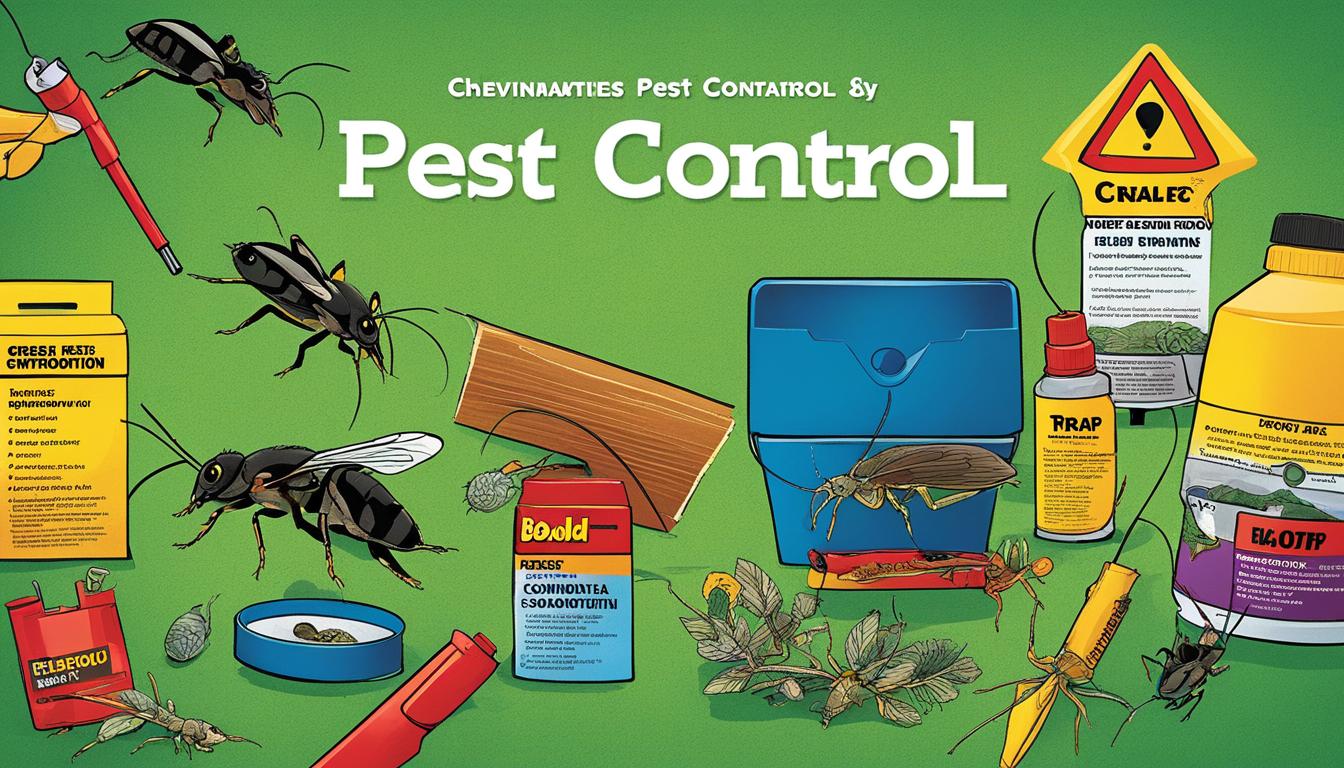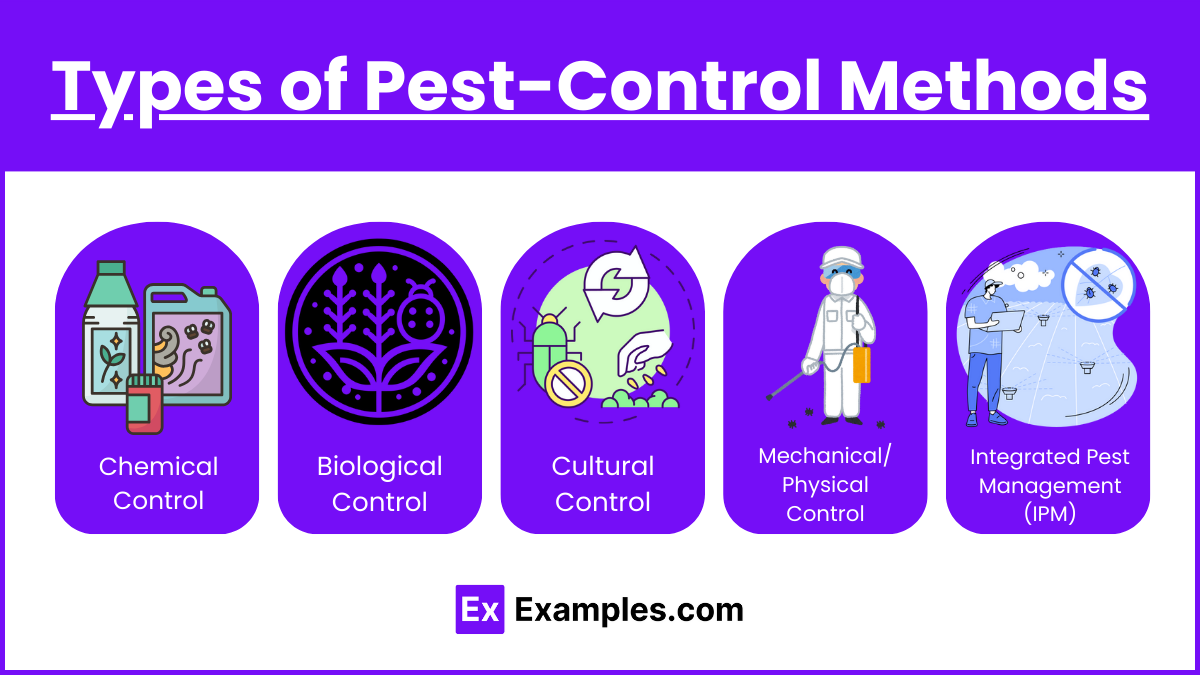9 Easy Facts About Pest Control Explained
9 Easy Facts About Pest Control Explained
Blog Article
Unknown Facts About Pest Control
Table of ContentsPest Control for BeginnersA Biased View of Pest ControlThe Best Guide To Pest ControlThe Ultimate Guide To Pest ControlWhat Does Pest Control Do?
Limitations of Chemical Monitoring Be able to analyze pest troubles, identify if administration is needed, and make ideal referrals making use of IPM strategies. Be acquainted with various methods of insect administration - their advantages and constraints.This chapter reviews (IPM), a strategy that utilizes understanding concerning parasites and their, practices, nonchemical techniques, and pesticides to handle parasite issues. Added info regarding IPM for specific plants is consisted of in phases that focus on those plants. Nonchemical bug control procedures are stressed in chapter 17, "Organic Gardening." Managing birds and creatures is covered in phase 20, "Wildlife." Taking care of in the backyard and yard is covered in phase 6, "Weeds." Insects in a yard or landscape might consist of bugs and termites, weeds,, creatures, and birds.
Many individuals hurry to draw, hoe, or spray every weed they see. Pests and weeds, however, play a duty in the. After growing a garden or developing a lawn, the natural process of plant succession begins to improve and nonnative plants. A weed growing in a lawn stands for the initial phase in a sequence of events that, if enabled to proceed, could at some point lead to a forest.
What we call "insects" are part of an all-natural system at the office. An ecosystem has no insects. Only human beings take into consideration specific species insects when they happen where they are not desired. We will certainly be much more effective in handling undesirable varieties when we realize that these microorganisms follow predictable patterns that we can utilize to our advantage.
The 6-Minute Rule for Pest Control
Insects vulnerable to a pesticide were promptly eliminated, leaving immune ones to breed and multiply. It came to be clear that chemicals alone would not address all parasite troubles.
An IPM plan enables some degree of bugs in the setting. Pests are a lot less likely to survive a program that makes use of several techniques of minimizing their populations. Integrated insect management was first suggested by entomologists since bugs were the very first group of bugs to show difficult to handle with chemicals alone.
A limit is the point at which activity ought to be taken. IPM has prolonged beyond pests to management of all pest populaces: weeds, illness microorganisms, and creatures.
Rumored Buzz on Pest Control
Monitoring rather than eradication of parasites is the goal. An IPM strategy begins with a mindful examination of each parasite infestation.
Clover growing in a grass may be deemed an undesirable weed, however as a legume it is manufacturing nitrogen for the soil and the flowers are providing nectar to honey bees and various other. Resistance for some weeds may become look at these guys part of an IPM plan. may be eating the fallen leaves of a plant, yet when they are determined as the larvae of Eastern tiger swallowtail butterflies, their damage may be tolerated so we can delight in the attractive butterfly.

The second crucial tool in bug management is early treatment. Being existing and watchful in the garden makes certain early discovery. Reacting to problems rapidly, prior to they have time to increase, requires a less dramatic intervention. The third most vital tool is recordkeeping; tracking what happens in the garden enables a gardener to acknowledge patterns and make informed decisions.
Pest Control Things To Know Before You Get This
Numerous risk-free, useful, nonchemical techniques of plant defense and parasite administration might minimize or get rid of the requirement to spray. Other approaches are most valuable when made use of with chemicals. To carry out administration practices properly and to lessen losses, garden enthusiasts need to be conscious of the types of bugs that strike plants and understand pest biology.

Conducting a soil examination and applying only the suggested amount of fertilizer and lime maximizes the advantage to the plant while decreasing problems connected to extreme use plant food - Pest Control. Covering the dirt with several inches of compost safeguards the plant in several methods: reducing dirt water loss to dissipation, decreasing weed competition, giving nutrients, and creating a suitable setting for earthworms and microorganisms that maintain the soil loose for roots and break down organic material to launch nutrients
If mulch touches the trunk, it can produce a way for voles, bacteria, and fungi to attack the plant. Do not use manure or compost that has not thoroughly disintegrated as a leading dressing since it can motivate undesirable bugs. Research study recommends that tilling the soil is harmful to dirt structure.
The Facts About Pest Control Revealed
If tilling is considered necessary, take into consideration doing it in the autumn when the life cycles of lots of parasites brings them near the surface. At the surface, insects end up being revealed to the weather in addition to birds and various other natural enemies. Autumn tilling can additionally damage pests in plant deposits. Use disease-free and insect-free licensed seeds and plants if offered.
Report this page